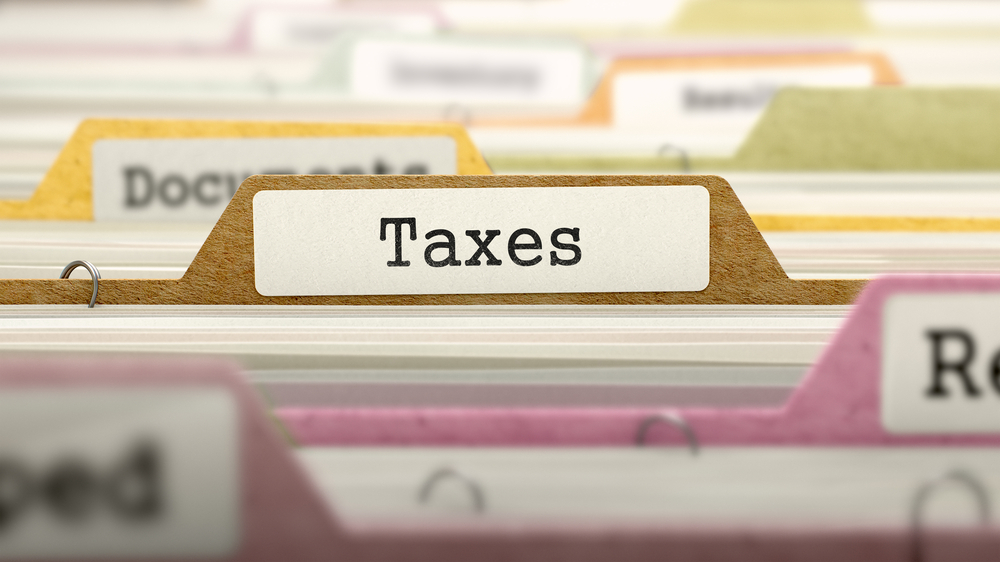by mBurse Team Member
February 26, 2024
Is your car allowance taxable? It depends on whether it's an IRS-accountable plan or a non-accountable plan.
When is a car allowance taxable income?
Most car allowances are treated as taxable income by the IRS. This is because most car allowances are administered as non-accountable plans as determined by IRS rules. The allowance payments qualify as compensation rather than reimbursement.
However, some organizations go the extra mile and fulfill the requirements for an accountable car allowance policy. These plans require more administrative work, including tracking mileage and other expenses. Let's look at the IRS guidelines.
Accountable vs. non-accountable vehicle allowance plans
Car reimbursement policies that do not meet IRS guidelines to be tax-free are classified as “non-accountable plans.” These plans do not use procedures to prove that all payments to the employee go to expenses from business use of a vehicle. A standard monthly car allowance is thus treated as taxable income.
Vehicle policies that do meet IRS guidelines are called "accountable plans." These policies apply one or more methods of proving business use of monies, making the payment a vehicle reimbursement rather than compensation. Examples include FAVR car allowances, mileage reimbursement at the IRS business rate, and mileage allowances.
What makes a car allowance taxable?
A standard car allowance is considered taxable because it does not substantiate business use. A mileage reimbursement remains non-taxable if it does not exceed the amount set by the IRS business mileage rate.
Each December the federal government sets a reasonable reimbursement standard by averaging vehicle costs from the previous year and releasing a standard business mileage rate. This rate is commonly referred to as the IRS rate. Unless you track and report business mileage, there is no way to prove that your car allowance remains within the standard set by the IRS.
Companies that pay a standard monthly allowance typically choose the method for its convenience. It eliminates record keeping, is easy to understand, and is easy to administer. However, convenience comes at a price in tax waste.
How should a car allowance be taxed?
Because a standard car allowance is a non-accountable plan, it should be taxed as W-2 income. The employer should withhold federal income taxes, FICA/Medicare, and state income taxes on the full allowance amount. The car allowance should be taxed at the employee's income bracket.
The requirement of taxation creates several problems:
- Money intended to reimburse business expenses is significantly reduced by tax withholding – often by 30-40%.
- Because of taxes, the allowance may not fully cover vehicle expenses.
- The company is taxed on the amount via unemployment and FICA.
If a vehicle allowance cannot fully cover car expenses, an employee may drive less or look for work elsewhere, increasing attrition. And if the employer fails to properly withhold taxes, an IRS audit could be painful.
Can I deduct business mileage for my car allowance?
Prior to 2018, the IRS allowed employees who received car allowances to deduct business mileage as an unreimbursed business expense. However, for tax years 2018-2025, you cannot claim mileage on your tax return to offset a taxable car allowance. The Tax Cuts and Jobs Act eliminated miscellaneous itemized deductions for those eight years.
This change, followed by rapid inflation in vehicle costs, has put pressure on employers to increase benefits or switch to an IRS-accountable plan. Because eight states have labor codes that require full reimbursement of business expenses, employers can face legal ramifications if they do not cover employees' vehicle costs.
What makes a car reimbursement non-taxable?
In short, a non-taxable or IRS-accountable plan demonstrates that all money paid by the plan goes to reimburse vehicle expenses incurred as part of the job. Because the payment is a reimbursement of an expense rather than compensation, it is not subject to taxes or withholding.
IRS guidelines for accountable (non-taxable) vehicle plans
An accountable plan must fulfill all the following criteria:
- Business connection: The reimbursement payment must address expenses incurred for business purposes, qualifying as a deductible business expense for the employer.
- Substantiation: The employee must submit a log supporting the elements of time, use, amount, and business purpose to be reimbursed. The trips should be recorded at or close to the time of expense.
- Employer reimbursement: Employees must pay back any excess reimbursement over the substantiated expenses. Under IRS Safe Harbor rules, the employee may provide substantiation within 60 days or return unsubstantiated amounts within 120 days.
- Defensibility. The allowance amount or reimbursement rate must be:
- reasonable, not to exceed the expenses or anticipated expenses.
- based on a uniform and objective basis with respect to expenses.
- periodically paid at a rate that combines fixed and variable costs.
- consistently applied to all eligible employees within the organization.
Are mileage reimbursements taxable?
Non-taxable vehicle reimbursements come in many forms. The most common is mileage reimbursement at the IRS business rate, which is $.655/mile for 2023. As long as the company pays the IRS rate or less, the mileage reimbursement remains non-taxable, meeting IRS criteria for an accountable plan.
The other two most common accountable plans are a mileage allowance and a fixed and variable rate car allowance, also known as FAVR reimbursement.
Examples of IRS-accountable vehicle allowance plans
IRS mileage rate
The IRS rate is viewed as defensible for reimbursement because it is set by the government and easy to calculate. However, the IRS rate was originally designed to be only a tax deduction tool. An employer can end up underpaying low mileage drivers and overpaying high mileage drivers because the rate does not derive from actual expenses.
Mileage allowance
A mileage allowance is a monthly car allowance with business mileage substantiation. Employers avoid taxation by tracking business mileage, multiplying it by the IRS rate, and comparing it against the allowance amount. Employees are only taxed on any overage. This approach, however, is challenging to administer and essentially caps employee mileage.
Fixed and variable rate allowance
Fixed and variable rate, or FAVR, is an IRS-supplied model for reimbursement. The employer issues both a fixed payment that addresses fixed expenses (insurance, depreciation, registration, etc.) and a variable mileage rate that addresses variable expenses (gas, oil, maintenance, etc.). All rates are based on the driver's garage zip code, increasing the accuracy.
FAVR allowance guidelines include 21 data, program, and driver tests, which all must be met for the program to be considered "FAVR compliant." For example, the predicted expense data must be based on a standard vehicle, derived from a base locality, and be statistically defensible.
A FAVR vehicle program can provide the most precise and equitable reimbursements, but it is also difficult to implement and manage. Many organizations outsource their FAVR vehicle program to a third party that specializes in auto reimbursements.
Which non-taxable vehicle allowance is best?
Switching from a taxable car allowance to the IRS mileage rate is the easiest option, but it will create inequities and may drive up company expenses.
The best option is to eliminate the tax waste of a traditional allowance and reinvest it in a fixed and variable rate program administered by a third party. This vehicle reimbursement approach will both protect employees' income and save the company money and time.
To pay a tax-free reimbursement, you must substantiate business use with an accountable plan. You cannot push the responsibility of substantiating business mileage to employees to avoid taxing your car allowance. Contact mBurse for more information on the best accountable plan for your organization.
3 Tips to Create or Improve Your Vehicle Allowance Program (Clone)





